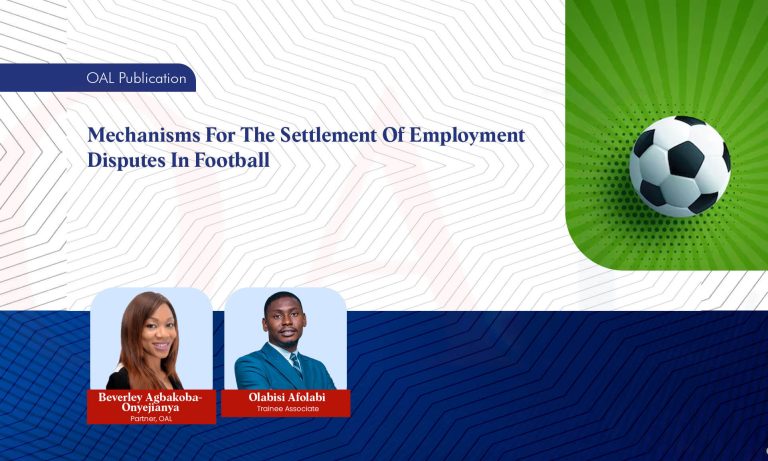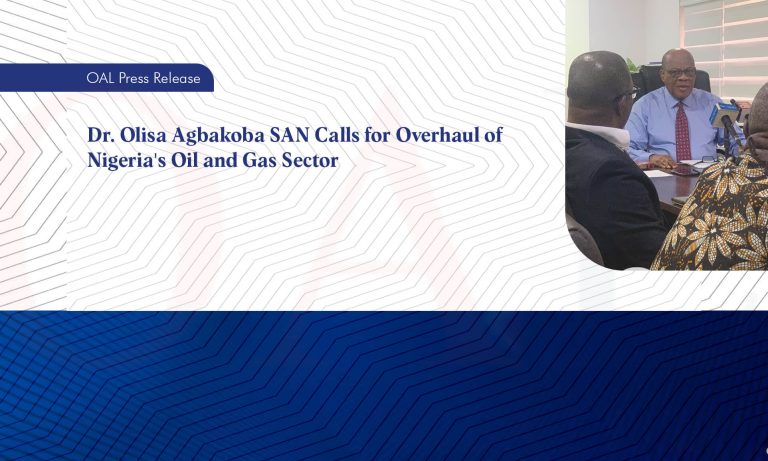
Legal Consequence of Non-Compliance with Group Life Insurance Provison of the Pension Reform Act

The Pension Reform Act (“the PRA” or “the Act”) was first enacted in 2004 and reenacted in 2014. Among many other provisions, the PRA makes Group Life Insurance compulsory for all employees.
Group Life Insurance is a scheme that may be likened to a death-in-service policy and is designed to pay a benefit called “the sum assured” to the next of kin or dependents of an employee who dies in active service. The rationale behind Group Life Insurance is to cushion the effect of the death of a deceased worker on his family and dependents.
The Act applies to all employers in the public and private sector who have more than five employees. Specifically, Section 4(5) of the Pension Reform Act 2014 provides:
“In addition to the rates specified in subsection (1) of this section, every employer shall maintain a Group Life Insurance Policy in favour of each employee for a minimum of three times the annual total emolument of the employee and the premium shall be paid not later than the date of the commencement of the cover”.
In other words, every employer, to which the Act applies, must maintain Life Insurance Policy in favour of every employee for a minimum of three times the annual total emolument of the employee. Under this policy, the total annual emolument is defined as the basic salary, transport and housing allowances and shall not include bonuses, overtime, directors’ fees or other fluctuating emoluments.
According to the guidelines for life insurance policy for employees jointly issued by the National Insurance Commission (“NAICOM”) and the National Pension Commission (“PenCom” or “the Commission”), the employer is required to fully bear all costs in relation to procurement of this policy, and this shall be in addition to the contributions to be made by the employer to each employee’s Retirement Savings Account.
Regrettably, the provision for Group Life Insurance in the Pension Reform Act is often ignored, even deliberately avoided by employers in the public and private sector leaving dependents of deceased employees stranded without support. These many employers are often ignorant of the legal consequence of contravening Section 4(5) of the PRA 2014 which is civil and criminal.
Section 4(6) of the PRA provides that:
“Where the employer failed, refused or omitted to make the payment as and when due, the employer shall make arrangement to effect the payment of claims arising from the death of any of the staff in its employment during such period”.
Section 99 (1) of the Act goes further to state that:
“Any person who contravenes any of the provisions of this Act commits an offence and where no penalty is prescribed, shall be liable on conviction to a fine of not less than ₦250,000 or a term of not less than one year imprisonment or to both fine and imprisonment”.
In Suit No. NICN/LA/697/2016, Collins U. Okeke and Another v. Delog Medical Services Limited and Another, the 1st Defendant tried to avoid liability for not complying with Section 4(5) of the Pension Reform Act 2014 by contending, on one hand, that their deceased employee was an unconfirmed contract staff and, on the other hand, that deceased had waived her right to Group Life Insurance.
The National Industrial Court disagreed with the 1st Defendant and held as follows:
“By the above provisions of Section 4(5) & (6) of the Pension Reform Act 2014, I hold that the 1st Defendant as the employer of the deceased has a mandatory duty to maintain Group Life Insurance Policy in favour of the deceased who was its employee.
The use of the words ‘every’ and ‘shall’ make it a mandatory duty for employers of labour to maintain a Group Life Insurance Policy for all their employees. All that needs to be established is an employment relationship. …. the provision admits of no exception or qualification.
The duty to maintain a Group Life Insurance Policy in favour of the deceased employee for the minimum of three times her total emolument, is a statutory duty imposed on the 1st Defendant that cannot be waived by the deceased employee……
By the provisions of Section 99 of the Pension Reform Act 2014, a person who contravenes any of the provisions of the Act commits an offence.
I find that the 1st Defendant has contravened the provisions of the Act, and under Section 99 of the Pension Reform Act committed an offence. However, the criminal jurisdiction of the court is not activated by this suit”.
It is noteworthy that the Judge in the above suit would have convicted the 1st Defendant for contravening the PFA if the court’s criminal jurisdiction were invoked.
By a circular titled, “Compliance with Guidelines for Life Insurance Policy for Employers and Submission of Insurance Certificates for 2020” and issued in January 2020, PenCom stated as follows:
“In accordance with the provisions of Section 4(5) of the Pension Reform Act (PRA) 2014 and Section 5.5 of the Guidelines for Life Insurance Policy for Employees, employers of labour covered by the PRA 2014 are required to submit copies of the Insurance Certificates with the schedule of benefits to the National Pension Commission (PenCom)…
The insurance certificates shall state that all employees are covered up to an amount not less than three times their respective Annual Total Emoluments (ATE)…
Compliance with PRA 2014 is not complete without the Group Life Insurance Policy…
Employers that have not yet submitted copies of insurance certificates for the current year to the commission are therefore advised to do so before 31 March, 2020 failing which the National Pension Commission would consider such employers in default of Section 4(5) of the Pension Reform Act (PRA) 2014”.
In a similar notice to the public, PenCom reiterated that Group Life Insurance is a right and one of the conditions of service of all employees in the public service of the Federation, Federal Capital Territory and states that have implemented the Contributory Pension Scheme as well as private sector under Section 4(5) of the PRA 2014. The Commission further advised employees to report where an employer fails to procure the minimum required life insurance policy in their favour.
Basically, Group Life Insurance Policy under the PRA is a statutory obligation anchored on public policy. Thus, it cannot be waived, ignored or avoided. See: N.N.P.C v. Dr. I. Nwodo & Others (2018) LPELR-45872 (CA). As such, an employee cannot be said to have waived his right to Group Life Insurance.
The regime of the Group Life Insurance Policy under the PRA differs from the Group Life Insurance under a contract of employment. Prior to the PRA, for the beneficiaries of a deceased employee to be entitled to a Group Life Insurance benefit, the contract of employment between the deceased worker and the employer must provide for Group Life Insurance. Consequently, where the contract of employment provides for Group Life Insurance and the employer failed to pay the contribution into the employee’s Retirement Saving Account.
The employer will be liable for breach of the contract of employment. However, under the PRA, Group Life Insurance is mandatory and is not dependent on whether it is provided in the contract of employment as the law does not permit a person to contract himself out of or waive the effects of a rule of public policy. See: Attorney-General of Bendel State v. Attorney-General of the Federation & 22 Others (1981) 10 SC 1 at 54.
The implication of failure to make Group Life Insurance contributions for employees is that the employer will be in breach of the provisions of the PRA. The legal consequences for non-compliance with the provisions of the PRA are both civil and criminal. The civil consequences include a claim against employer as seen in Collins U. Okeke and Another v. Delog Medical Services Limited and Another (supra).
In addition, PenCom is empowers under Section 24(g) of the PRA to impose administrative or civil sanctions or fines on erring employers. On the other hand, employers may face criminal prosecution under Section 99(1) of the Act.
Where Group Life Insurance contributions have been made for an employee, the insurance company is mandated to pay the sum assured, upon the death of an employee, to a beneficiary of the estate of the deceased. The beneficiary must be named in the policy and must submit a valid Will, Probate or Letters of Administration to the Pension Fund Administrator who shall with the approval of PenCom release the benefit to the personal representative of the deceased.
Employers and Pension Fund Administrators are advised to properly keep and update the records of beneficiaries of employees. On the other hand, beneficiaries of deceased workers are advised to seek legal advice in the event that they are unable to receive the Group Life Insurance entitlements of their relatives or where the employers of their deceased relatives fail to make Group Life Insurance contributions for the employees.
Written By:
Collins Okeke and Ugochukwu Mathew-Gerald Eze
Author



